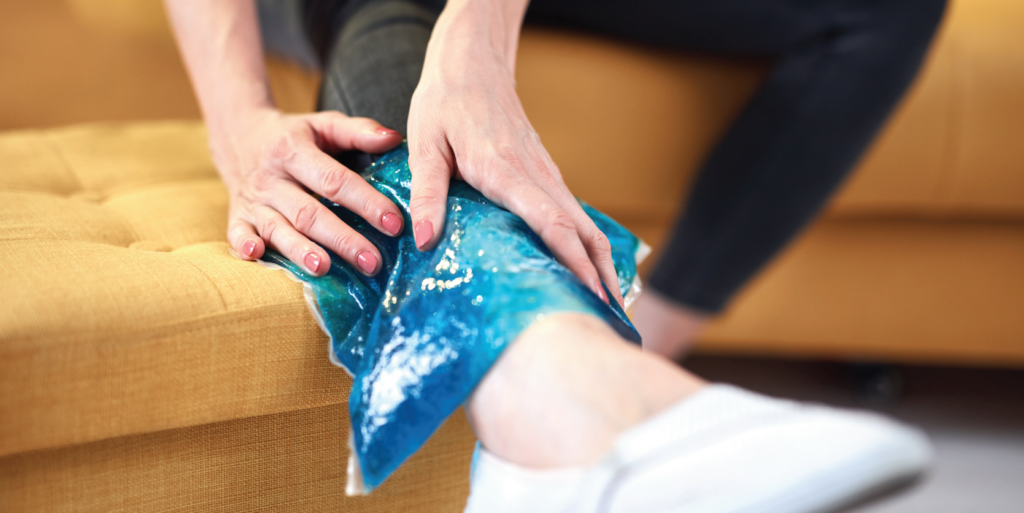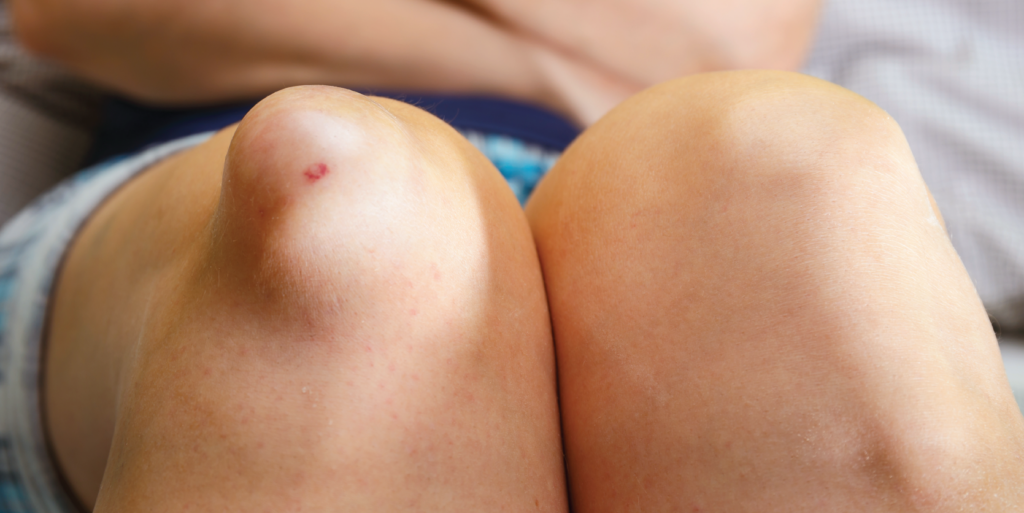Despite how swelling is a common physical response to injuries, seeing it happen can cause worry and concern. Knowing how long swelling should last after an injury and knowing how to handle swelling will help set patients up for a smoother recovery. In this article, we’ll explore the factors affecting swelling duration, when to seek medical help, and effective ways to reduce it. How long should swelling last after injuries? Let’s find out!
What is Swelling?
Swelling is the body’s natural inflammatory response to infection, injury, or another underlying condition in the body’s soft tissue. It aims to protect and heal the injured or affected tissue and involves an accumulation of fluid in the affected area, leading to an increase in size and often causing noticeable bulging or puffiness. Pain, redness, and warmth usually accompany swelling.
What Types of Injury Cause Swelling?
Swelling can result from a wide range of injuries and conditions, including but not limited to the following:
- Traumatic Injuries or Tissue Damage (Sprains, Strains, Fractures, etc.)
- Burns
- Inflammatory Conditions (Arthritis, Tendinitis, etc.)
- Infections
- Allergic Reactions
- Chronic Medical Conditions (Heart Failure, Kidney Disease, etc.)
- Fluid Retention
- Surgical Procedures (Post-Operative Side Effect)
- Overuse

How Long Should Swelling Last After Injuries?
The duration of swelling after an injury can vary widely depending on several factors, including the type and severity of the injury, your overall health, and how well you manage the swelling. In general, swelling falls into one of three categories: acute, subacute, and chronic.
Acute Swelling
Swelling right after an injury is considered acute and often peaks within 48-72 hours. It should gradually subside over the next few days to a week.
Subacute Swelling
In a milder form, swelling can persist up to two to three weeks after the injury, gradually improving.
Chronic Swelling
If swelling continues for more than three weeks, it may be considered chronic and should prompt further evaluation by a medical professional.
The healing process varies from person to person, and different injuries may follow different healing timelines. Regardless of the duration or intensity of swelling after an injury, it is important to care for the injury properly.

How to Treat Swelling at Home
You can often manage swelling at home with some simple remedies. Here are some steps to consider:
- Avoid putting weight on or stressing the injured part of the body to prevent further injury.
- Apply an ice pack wrapped in a thin cloth for 15-20 minutes every 1-2 hours during the first 48 hours. This can help reduce swelling and pain.
- Use an elastic bandage to gently compress the swollen area, which can help reduce fluid buildup.
- Elevate the injured area above the level of your heart whenever possible to encourage drainage of excess fluid.
- Non-prescription anti-inflammatory drugs like ibuprofen or aspirin can also be used to help reduce pain and swelling.
- Drink plenty of water to help flush excess fluids from your body.
- A balanced diet can aid in the healing process.
- Reducing your salt intake can help minimize water retention and swelling.
- Avoid complete immobilization of the affected area, as some gentle movement can stimulate blood flow and help reduce swelling.
- Light, gentle massage around the swollen area from a trusted family member, friend, or physical therapist can promote lymphatic drainage and alleviate swelling.
When Should I Seek Help for Swelling?
Swelling may warrant medical attention under several circumstances. Firstly, if the swelling is severe, sudden, or causes significant pain, it is advisable to seek immediate medical assistance.
Persistent swelling that doesn’t improve over time should be evaluated by a healthcare provider, especially if it is associated with other symptoms like redness, limited mobility, or loss of sensation. Swelling linked to signs of infection, such as fever or pus discharge, should not be ignored and requires prompt medical assessment.
Lastly, if you have underlying health conditions or notice difficulty breathing, chest pain, or swelling of the face and throat along with swelling at the site of an injury, consulting a healthcare professional is crucial for a comprehensive evaluation and appropriate guidance.
Get Help From Your Neighbors
In the bustling city of Houston, where life’s fast pace can sometimes lead to unexpected accidents and injuries, it’s crucial to remember that you don’t have to face swelling and other medical emergencies alone.
Neighbors Emergency Center, right here in your community, stands as a reliable partner in your healthcare journey. Neighbors Emergency Center facilities are fully equipped with state-of-the-art CT scan and X-ray machines, allowing you the convenience of on-site diagnoses for strains and sprains and other injuries.
Whether it’s swelling after an injury or any other urgent medical situation, our dedicated team of medical professionals is ready to provide immediate and compassionate care, ensuring that you receive the attention you need when it matters most. Visit our website to find a state-of-the-art Neighbors ER facility near you!

